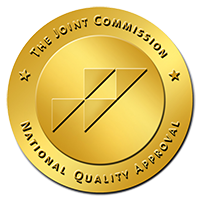Concussion Safety
Prior to the Practice or Game:
- Your child should have a sports physical or general health exam
- Provide emergency contact and health information to the coach.
- Be familiar with your coach. Is she/he CPR trained? First aid trained
- Check that your child is physically and psychologically ready to play and knows the basic skills
- Check that your child is playing against kids of similar skill, weight, and maturity
- Check that your child is wearing appropriate safety gear and equipment for the sport
- Ensure that your child warms up and stretches before playing
During the Practice or Game:
- Ensure adult supervision at all times.
- Keep children hydrated prior to, during, and following athletic activities.
- Provide adequate rest breaks.
- Practice good sportsmanship and play by the rules.
- Pay attention to changing weather conditions and check the activity area for hazards.
Concussion Safety
- A concussion is a brain injury.
- All concussions are serious.
- Most concussions occur without loss of consciousness.
- Concussions can occur in any sport or recreation activity.
- Recognition and proper response to concussions when they first occur can help prevent further injury or even death.
- Athletes who have ever had a concussion are at increased risk for another concussion.
- Young children and teens are more likely to get a concussion and take longer to recover than adults.
- A repeat concussion that occurs before the brain recovers from the first—usually within a short period of time (hours, days, or weeks)—can slow recovery or increase the likelihood of having long-term problems
- Athletes who experience one or more of the signs or symptoms listed below after being hit, bumped, or having a jolt to the head or body may have a concussion.
SIGNS OBSERVED
- Appears dazed or stunned
- Is confused about assignment or position
- Forgets an instruction
- Is unsure of game, score, or opponent
- Moves clumsily
- Answers questions slowly
- Loses consciousness (even briefly)
- Shows mood, behavior, or personality changes
- Can’t recall events prior to hit or fall
- Can’t recall events after hit or fall
SYMPTOMS REPORTED BY ATHLETE
- Headache or “pressure” in head
- Nausea or vomiting
- Balance problems or dizziness
- Double or blurry vision
- Sensitivity to light
- Sensitivity to noise
- Feeling sluggish, hazy, foggy, or groggy
- Concentration or memory problems
- Confusion
- Just not “feeling right” or is “feeling down”
If you think an athlete may have a concussion, you should:
- Remove the athlete from play.
- Keep the athlete out of play the day of the injury and until a health care professional, experienced in evaluating for concussion, says s/he is symptom-free and it’s OK to return to play.
- Record and share information about the injury, such as how it happened and the athlete’s symptoms, to help a health care provider assess the athlete.
- Notify the athlete’s parents or guardians about the possible concussion. Refer them to their family health care provider.
- Written instructions from the athlete’s health care provider should help the athlete safely return to play. Nebraska passed a Concussion Awareness Act in 2012 that states “An athlete may not return to play until they have been evaluated and received written clearance from a licensed health care professional who is trained in the evaluation and management of brain injuries among a pediatric population.” This will generally include a return to play protocol and a return to learn protocol that should be provided by your licensed health care professional. See more information at http://dhhs.ne.gov/publichealth/concussion/Pages/Home.aspx
Before returning to play an athlete should:
- Be back to doing their regular school activities.
- Not have any symptoms from the injury when performing normal activities.
- Have the clearance from their health care provider to begin the return to play process.
For more information go to https://www.cdc.gov/headsup/index.html



